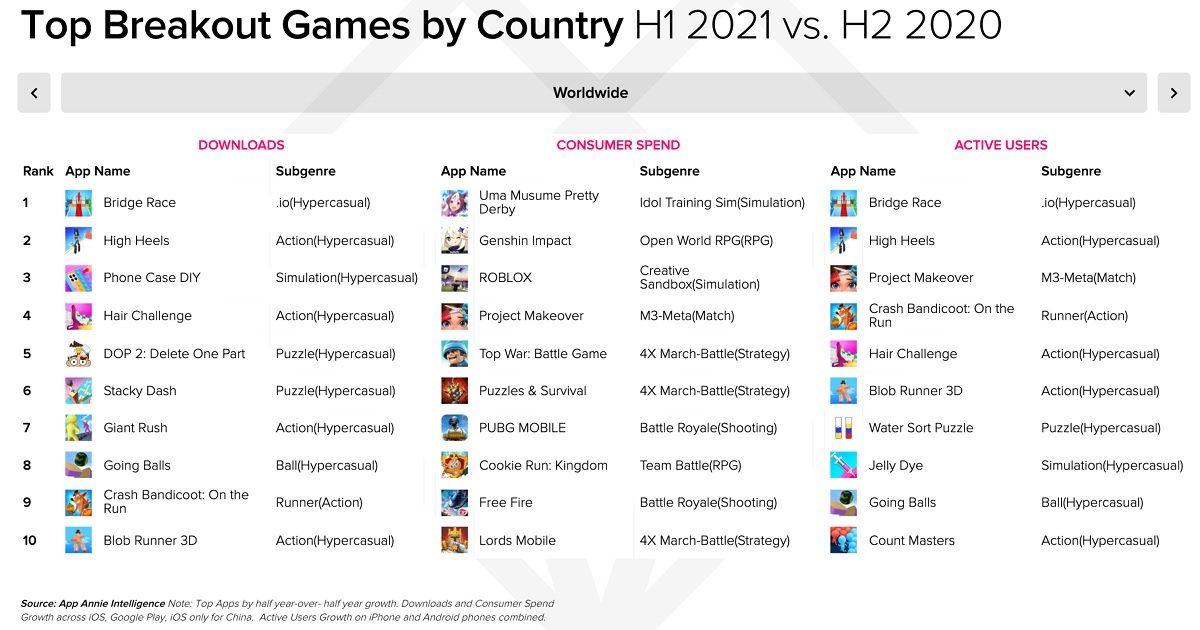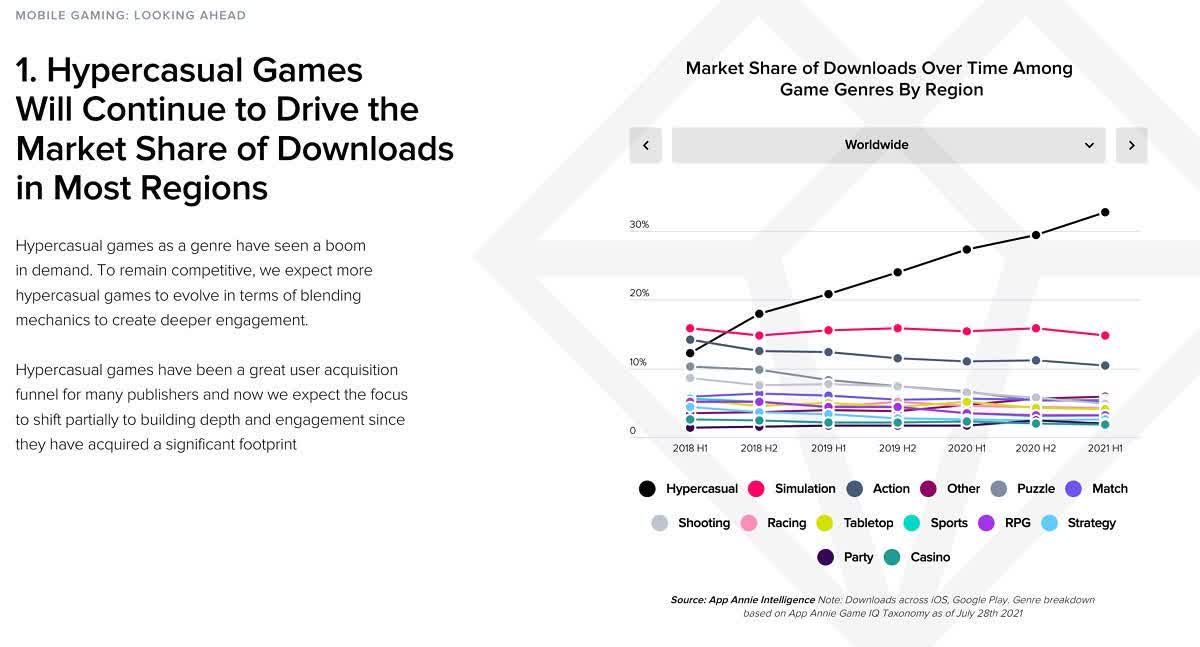In brief: As with video games and streaming services, the mobile gaming market saw an uptick while the world was locked down last year. But has slackening restrictions and the opening of outdoor activities damaged the industry during 2021? No, quite the opposite: consumers spent $1.7 billion on Android and iOS games per week globally throughout the first half of this year, with hyper-mobile games still proving the most popular.
App Annie's 2021 Mobile Gaming Tear Down report shows that spending on mobile games is on track to pass $120 billion this year. That would mark a 20% increase over the $100 billion in 2020. Weekly spending, meanwhile, is up 24% YoY and 40% compared to the pre-pandemic days of 2019.
Hyper-casual games, which are described as easy-to-play, usually free, and with minimalistic interfaces, continue to take the majority market share of mobile game downloads. Illustrating the genre's popularity is Angry Birds creator Rovio Entertainment's agreement to acquire hyper-casual game studio Ruby Games, the company behind Hunter Assassin---the sixth most-downloaded title in the world last year---for a deal that will likely exceed $90 million. It follows mobile giant Zynga's acquisition of Istanbul-based Rollic, another hyper-casual mobile game company, for at least $168 million.
Elsewhere, the puzzle and action subgenres grew 16% and 37% from the first half of 2020, respectively.
More mobile games are generating over $1 million per month---an average of over 810 in the first half of 2021. That's up 6% YoY and 25% compared to 2019. Not too surprisingly, some of the games people spent the most money on were Roblox, Genshin Impact, and Honour of Kings.
In the US, most mobile gamers are female (64%). That's not unusual as the only big regions with more male users than female are Japan (56% male) and South Korea (53% male).
There are several factors behind the rise in mobile spending this year: people are continuing to play the games they downloaded during the height of the pandemic; the shortages and expense of new consoles and PC hardware mean more consumers are turning to mobile; and people returning to work continue to use these games during their commutes.


